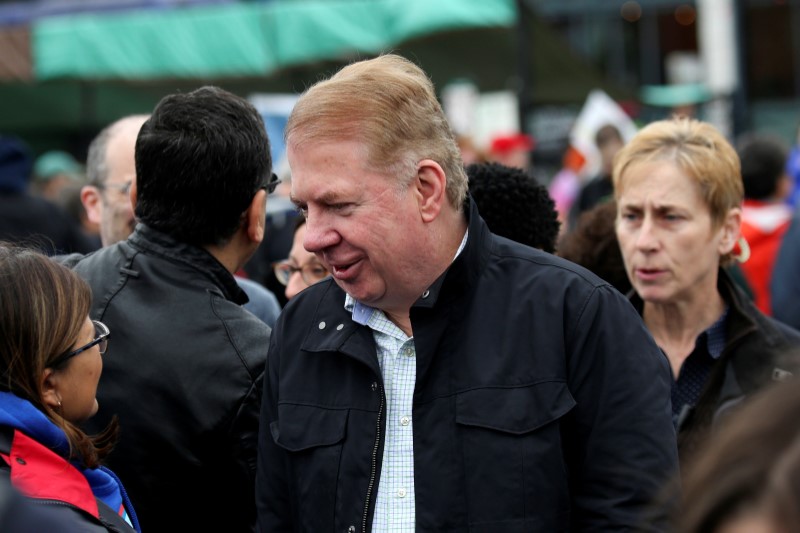By Eric M. Johnson
SEATTLE (Reuters) - Seattle's city council unanimously passed a pioneering income tax on the city's highest earners on Monday, a measure that has become a clarion call for Democrats there even though it is likely to face a swift legal challenge over violating state law.
The measure created a 2.25 percent tax rate on individuals earning above $250,000 and married couples jointly earning above $500,000. The tax will add roughly $140 million in new annual revenue and affect fewer than 20,000 residents in the city of more than 660,000, supporters say.
The proposal has become a rallying cry for Democrats and activists in the liberal-leaning city who used local opposition to Republican President Donald Trump to advance long sought-after local policies.
Washington is one of seven U.S. states without a tax on personal income, and no city in the state has an income tax.
Supporters of the Seattle proposal, including Mayor Ed Murray, say the current tax code unfairly burdens poor and middle class residents because it relies on "regressive" taxes, such as taxes on property and sales transactions.
Proponents say new revenue is needed to offset any potential drop in federal funding under the Trump administration.
"Our goal is to replace our regressive tax system with a new formula for fairness, while ensuring Seattle stands up to President Trump's austere budget that cuts transportation, affordable housing, healthcare, and social services," Murray said by e-mail after the city council's 9-0 vote.
Earlier on Monday, Murray told a cheering crowd at a rally outside city hall he would sign the measure into law on Friday and welcomed a legal challenge.
The campaign for the new tax on Seattle's richest was launched earlier this year by Trump Proof Seattle, a coalition of community activists and residents.
Proceeds from the tax could be used to pay for transit services and affordable housing, Murray said. The city has been grappling with soaring housing prices in recent years, fueled in part by the growth of online retailer Amazon.com (NASDAQ:AMZN), which is headquartered in downtown Seattle.
Voters in Olympia, the state capital, rejected a similar tax on its highest earners last year. In 2010, Washington state voters rejected a state income tax at the ballot box.
Jason Mercier, a director at the conservative Washington Policy Center, said Seattle's tax conflicts with state law and court decisions. He said he expects the city to face a swift legal challenge after Murray signs the measure into law.
"There's something fundamentally wrong with elected officials passing a tax they know is against state law and the constitution with the hope of being sued and having a judge overturn prior decisions," Mercier said.
State law blocks a county or city from levying a tax on "net" income, although net income is not defined in the statute.

The Washington state Supreme Court has found that income is treated as property under the constitution and therefore has to be taxed uniformly and at no more than 1 percent of its value, Mercier said.